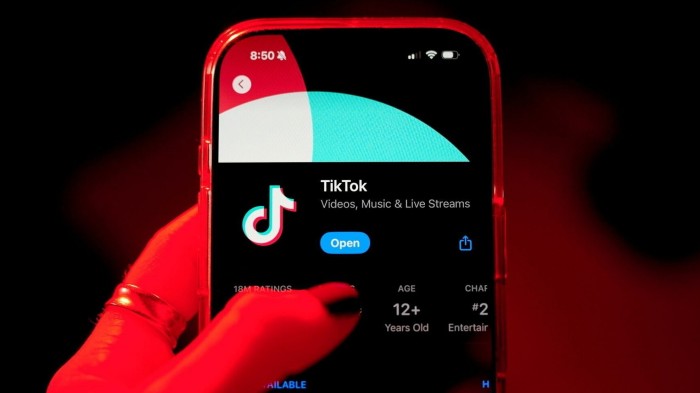Unlock the White House Watch newsletter for free
Your guide to what the 2024 US election means for Washington and the world
International investors have long flocked to the US as a country of clear laws, strong property rights and robust institutions. They may want to revise that view if the rollercoaster ride that is TikTok, now hurtling through the tunnel of the living dead, crashes into the buffers. Even big multinational companies, with 170mn enthusiastic users in the US, can become the plaything of politicians. And it is still far from clear how the saga is going to end.
Ironically, given his recent support for the company, Donald Trump was among the first to shout about the national security threat posed by TikTok during his first presidential term. In 2020, Trump issued an executive order threatening to ban the service. As the US offshoot of the Chinese-owned ByteDance, TikTok was seen by many politicians in Washington as a digital spy and potential Chinese Communist party propaganda tool. TikTok has since spent enormous time and resources on efforts to disprove these accusations, partnering with Oracle to ringfence the data of its US users and insisting on the impartiality of its algorithms.
Politicians on both sides of the congressional aisle have remained unimpressed. Last April, in a rare display of bipartisanship, the Senate voted, by a margin of 79 to 18, to approve legislation threatening to ban TikTok in the US unless ByteDance sold it. TikTok lobbied vigorously to overturn the law, arguing it would erode free speech and the business interests of millions of Americans.
This month, the Supreme Court unanimously dismissed the company’s pleas, backing Congress’s “well-supported national security concerns”. China has reacted with indignation, but Beijing itself firewalled most US platforms years ago, also ostensibly on national security grounds.
But TikTok had more success mobilising the support of its users and winning over the once-hostile Trump. Last June, the then presidential candidate launched his own TikTok account and now has more than 15mn followers. He has skilfully used the short-form video platform to target younger voters. TikTok’s chief executive, Shou Zi Chew, was even given a prominent seat at Trump’s inauguration.
Upon re-entering the White House, Trump issued an executive order seeking to delay enforcement of the ban-or-divest law against TikTok that came into effect on January 19. But this executive order does not overturn the law, leaving the company, and the US platforms that host it, in legal limbo. Meanwhile, Trump appears to be using TikTok as a valuable pawn in a far bigger game with China. The president has suggested that if Beijing were to sell 50 per cent of TikTok to the US — though China has previously refused to countenance any kind of sale — then Washington might go easier on trade tariffs.
It is possible that Trump may yet seal an improbable deal keeping all parties happy. But it is hard to see how that will happen given the demands of China hawks in Washington to nullify any national security threat and TikTok’s determination to keep its algorithms secret. The more likely outcome is that the president will try to strong-arm the business into the hands of an administration-friendly associate. Trump said this weekend that “numerous people” had talked to him about buying the app and a decision was likely in the next 30 days.
Last week, Trump urged global business leaders at Davos to step up investment in the US. But his history of highly transactional dealings will give them pause. Investors understandably prefer to operate within the bounds defined by laws, rights and institutions. The outcome of the TikTok dispute will show how far these still apply in the US.
Read the full article here

